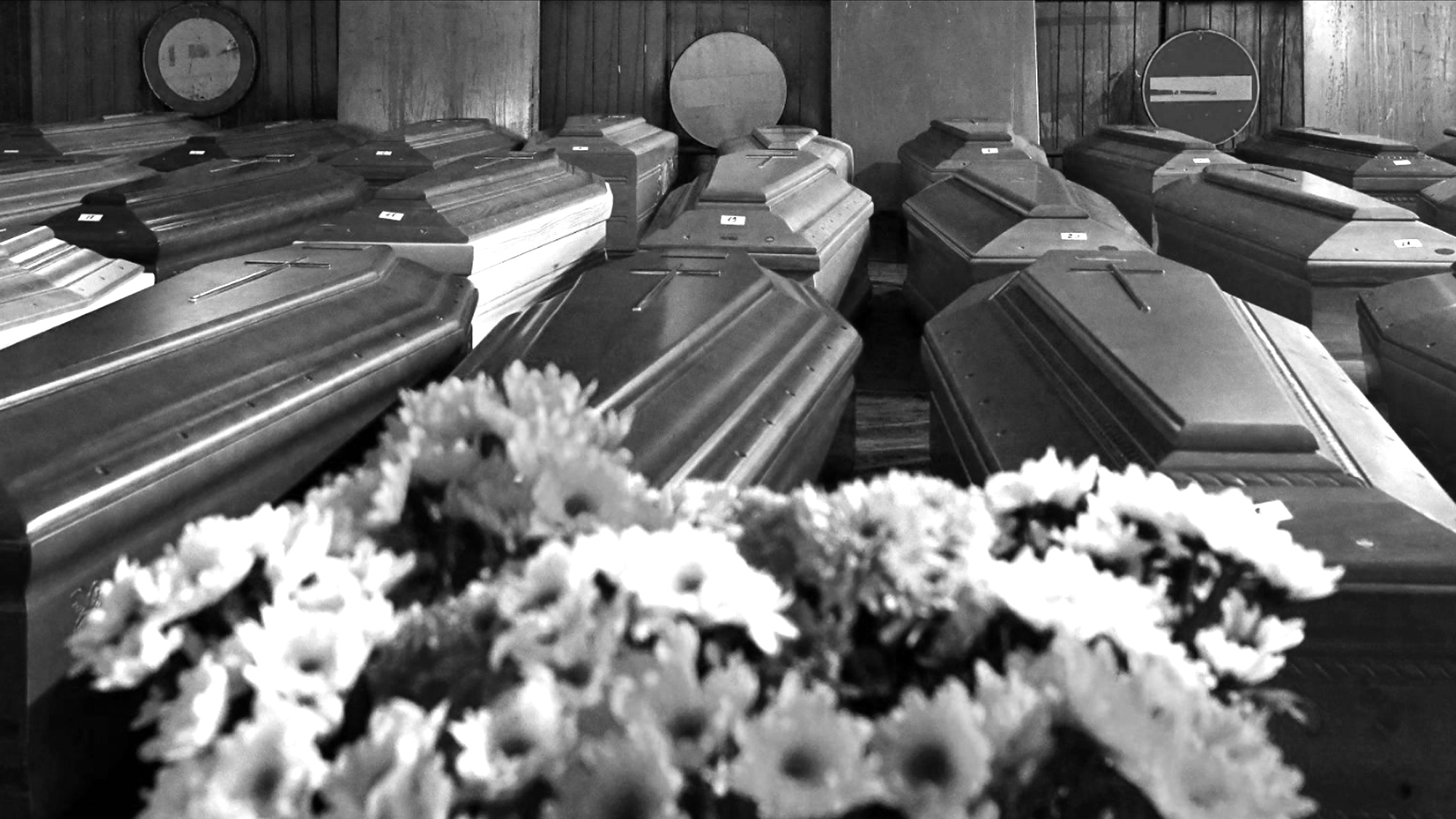
Coffins carrying coronavirus victims are stored in a warehouse in Ponte San Pietro, Italy, on March 26, 2020. /AFP
Coffins carrying coronavirus victims are stored in a warehouse in Ponte San Pietro, Italy, on March 26, 2020. /AFP
"Losing someone is hard enough, but not being able to hold your family close when you do is the most gut-wrenching pain I've ever felt in my life," said a sobbing son in a heart-breaking video that went viral on social media recently.
The man identified as Stuart Hamlin from Portsmouth in the UK posted the video on his Facebook account revealing how he lost his mother to the novel coronavirus and was unable to see and hold her for the very last time.
"We can't grieve, we can't comfort each other. We can't hold each other," he cried.
Stuart is not alone. As of Saturday, COVID-19 has claimed more than 58,900 lives and infected over a million people worldwide, according to Johns Hopkins University. With visitors banned in order to control and prevent the spread of the virus, almost everyone is dying in isolation – away from their loved ones.
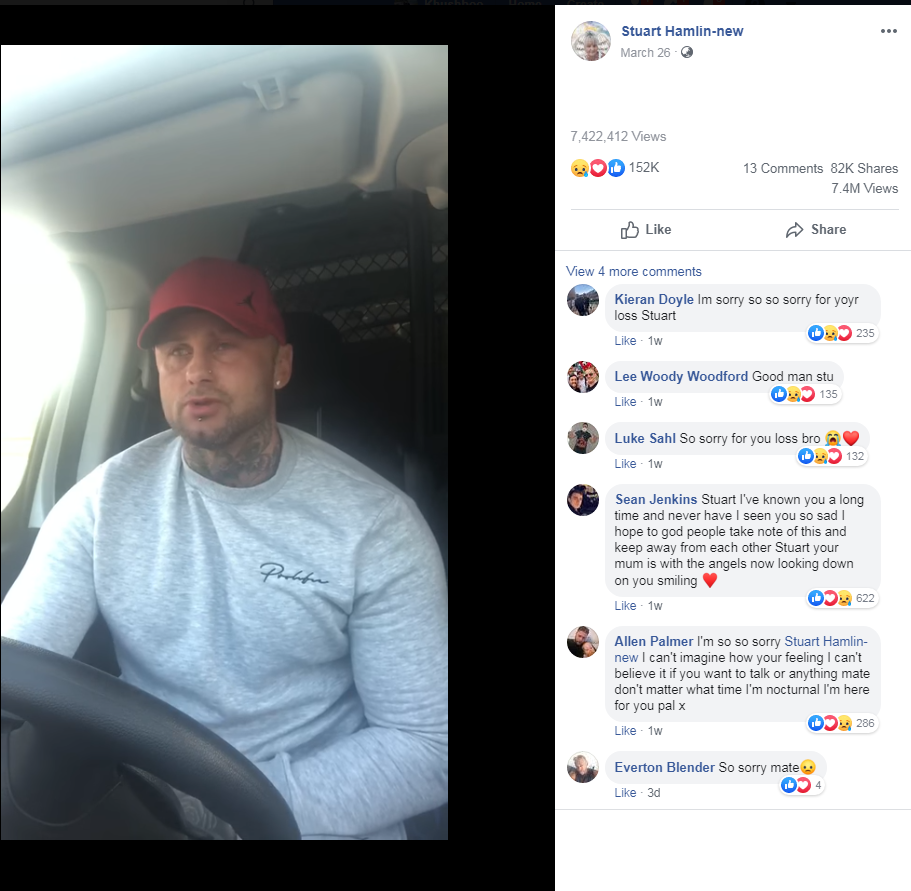
An emotional video posted by Stuart Hamlin on his Facebook page after he lost his mother to COVID-19. Stuart Hamlin/Facebook
An emotional video posted by Stuart Hamlin on his Facebook page after he lost his mother to COVID-19. Stuart Hamlin/Facebook
Dealing with death and the dead during COVID-19
Heather Conway, professor of Property Law and Death Studies at the School of Law, Queen's University Belfast, says, "At an emotional level it could have a heartbreaking impact on the people who lose loved ones, when that person has died alone. It's one of our biggest social taboos… we believe that people should not die alone."
So, is the coronavirus pandemic changing the way we deal with death and the dead?
"There are two core values, namely respect and decency for the dead and protecting public health. In the current circumstances, it's probably more accurate to say that how we treat the dead is being fundamentally altered these days. The focusing has shifted to safeguarding public health – and by this we mean physical health of the living (against the threat posed by the virus)," Prof. Conway told CGTN Digital.
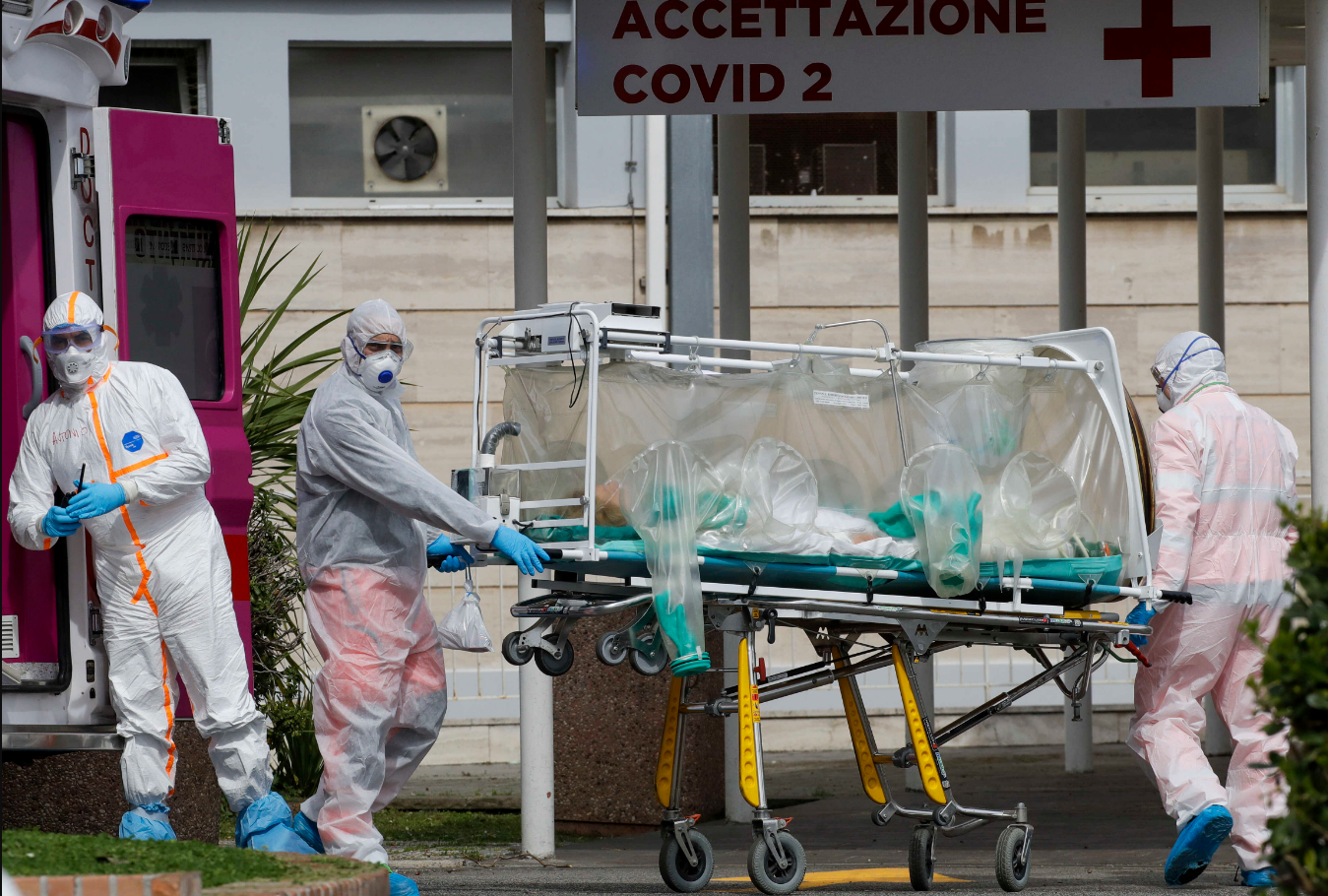
A patient in a biocontainment unit is carried on a stretcher from an ambulance arrived at the Columbus Covid 2 Hospital in Rome, March 17, 2020. /AP
A patient in a biocontainment unit is carried on a stretcher from an ambulance arrived at the Columbus Covid 2 Hospital in Rome, March 17, 2020. /AP
According to Professor Douglas James Davies, director of the Center for Death and Life Studies at Durham University in the UK, the pandemic has turned death into a matter of fact from being a matter of opinion. "In the current world circumstances, people are talking about the statistics of how many people have died of the virus. So, when we talk about religious and political beliefs, they are opinions and we can dispute them, but numbers are very factual."
"I think that's a really important issue, the role of numbers in bringing out to the surface the otherwise implicit anxiety over death," Prof. Davies told CGTN Digital.
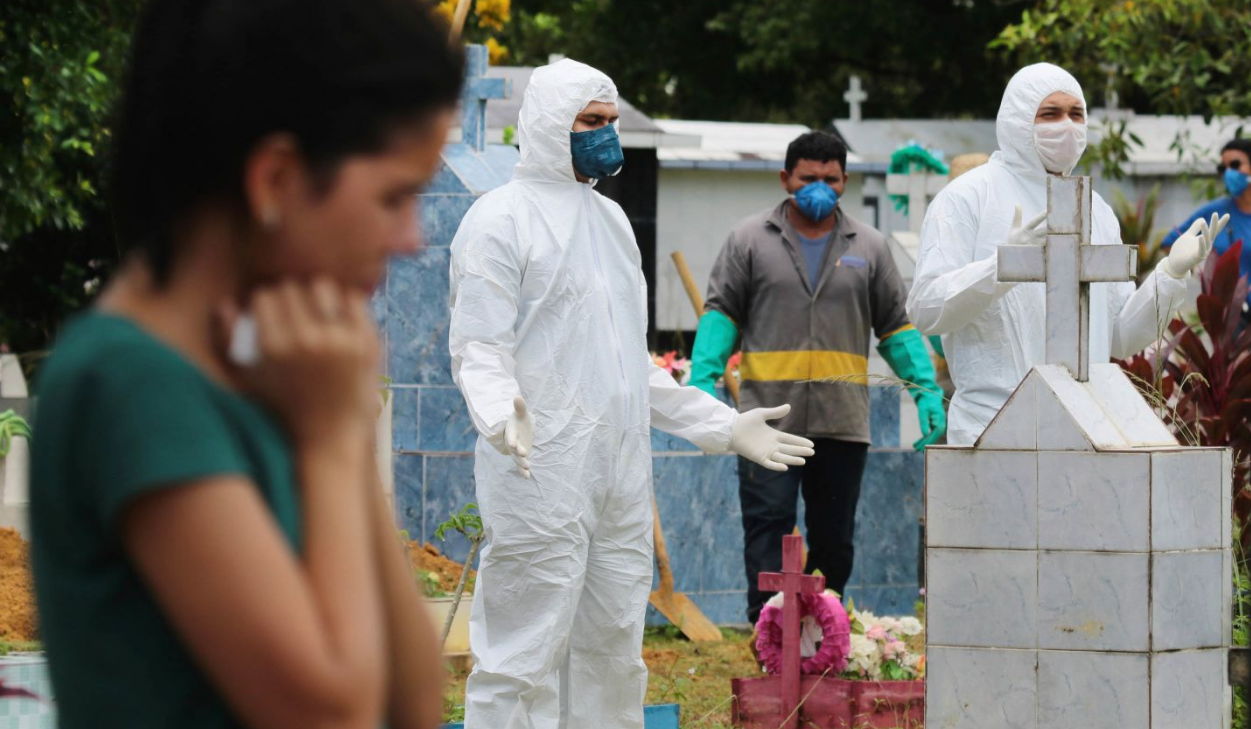
People pray next to the grave of musician Robson de Souza Lopes after his burial in Manaus, Brazil, on March 31. According to authorities at the Amazonas Health Secretary, the 43-year-old died after being diagnosed with the novel coronavirus. /AP
People pray next to the grave of musician Robson de Souza Lopes after his burial in Manaus, Brazil, on March 31. According to authorities at the Amazonas Health Secretary, the 43-year-old died after being diagnosed with the novel coronavirus. /AP
Altered funeral rituals amid COVID-19
But with strict social distancing measures and gatherings limited to a few attendees, grieving families are left behind with an additional trauma of not being able to say a final goodbye.
"Funeral formats have changed with closed coffins which means that families won't be allowed to see or to touch the dead for the last time. Family members are also maintaining social distancing at funerals: they can't carry the coffins to the grave and must stand apart from each other at the graveside. Though the virus dies in the dead but these are the precautions that need to be taken at this time," Prof. Conway said.
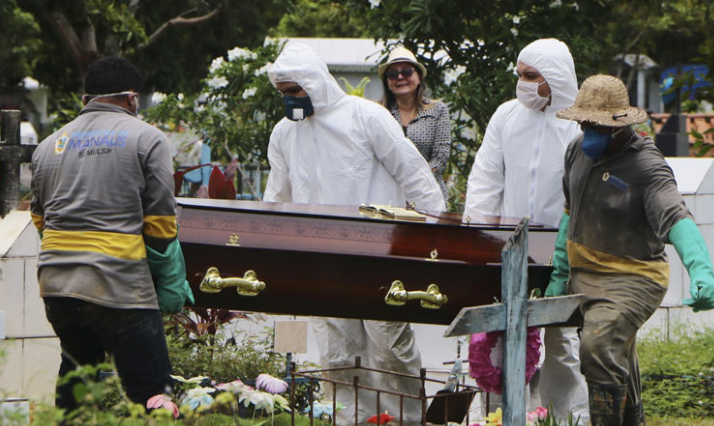
A relative stands at a distance during the burial of a coronavirus victim at a cemetery in Manaus, Brazil. /AP
A relative stands at a distance during the burial of a coronavirus victim at a cemetery in Manaus, Brazil. /AP
Even Islamic scholars and imams are invoking rarely-used funeral rituals of the Islamic law.
"These days we are not performing the ritual bathing and balming on the bodies before burying them in a plastic bag rather than the 'kafan' or white burial shroud," Maulana Khalid Firangi Mahli, chairperson of the Islamic Center of India, told CGTN Digital, adding that due to the current situation only immediate family members are allowed to attend funerals.
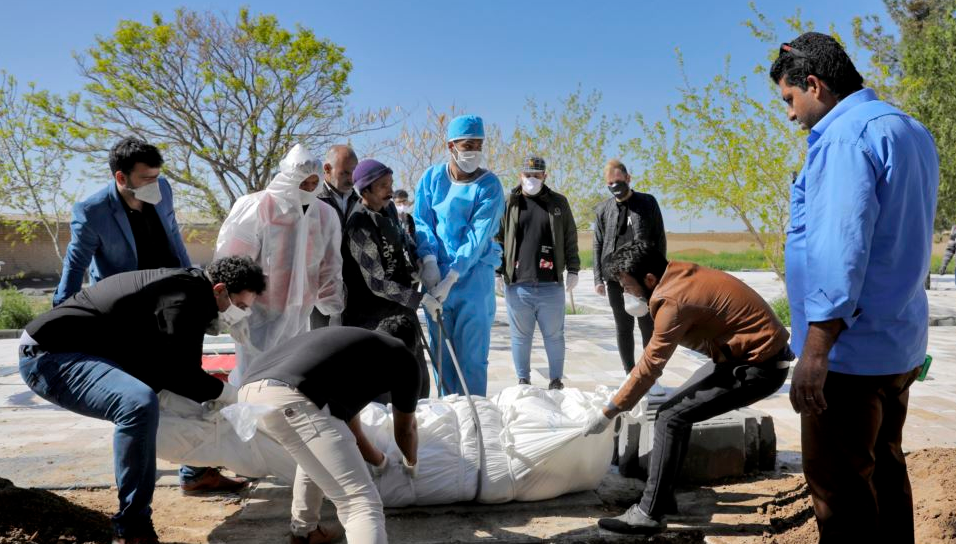
Funeral rituals being performed of a person who died of the novel coronavirus at a cemetery in Tehran, Iran, March 30, 2020 /AP
Funeral rituals being performed of a person who died of the novel coronavirus at a cemetery in Tehran, Iran, March 30, 2020 /AP
And then there are those who are turning to technology in this time of grief in seclusion. "What I have noticed is that people are being more creative in how they honor their lost loved one due to the restrictions on large gathering. Many are using the resources of the internet to have virtual gatherings where they come together online to celebrate the memory of the loved one," Jerry Joule, Campus Ministry director for the Baptist Student Ministry at the University of Texas Rio Grande Valley, U.S., told CGTN Digital.
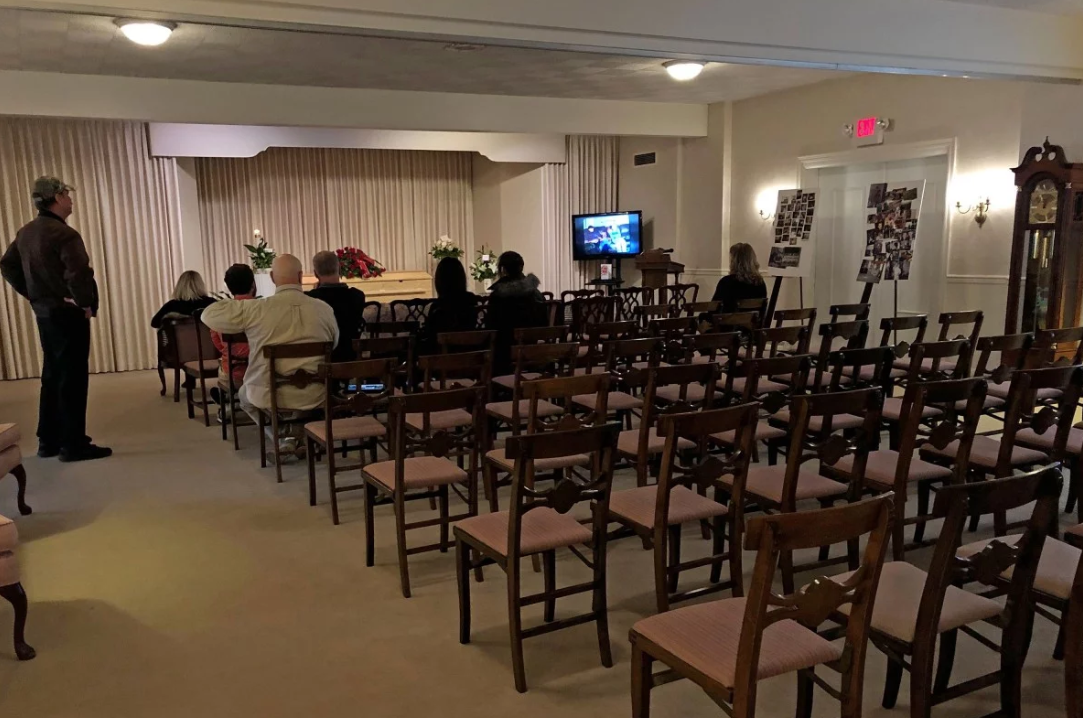
A funeral affected by the new rules put in operation to combat the coronavirus outbreak takes place in Wisconsin, U.S. /AP
A funeral affected by the new rules put in operation to combat the coronavirus outbreak takes place in Wisconsin, U.S. /AP
Grieving alone and finding closure
But can altered funeral traditions, and virtual memorials replace the basic human comfort of touch, hug and a kiss?
"During funeral rituals the society takes us by the hand at a time when we need someone to support us and lead us," Prof. Davies quoted Dutch anthropologist Arnold van Gennep, saying that those who have lost their loved ones during the pandemic will carry with them the "sense of deprivation" since ordinary funerals and the culture of funerals have dramatically changed.
Prof. Davies told CGTN Digital that he's expecting mass memorials for the victims around the world to replace bad memories associated with their death with "healthy grief."
For now, millions are forced to mourn in isolation. "Closure is very important for the grieving process. While that final hug and goodbye kiss are very meaningful and helpful in finding closure, it is possible to find closure even when one does not have such an opportunity," said Pastor Joule, adding "It is important to know that even during social distancing you do not have to face grief alone. Reach out to someone, even if it is only by telephone, find someone who will walk with you in this situation. It is important to cherish the memory of the loved one and remember the beautiful times you had together."
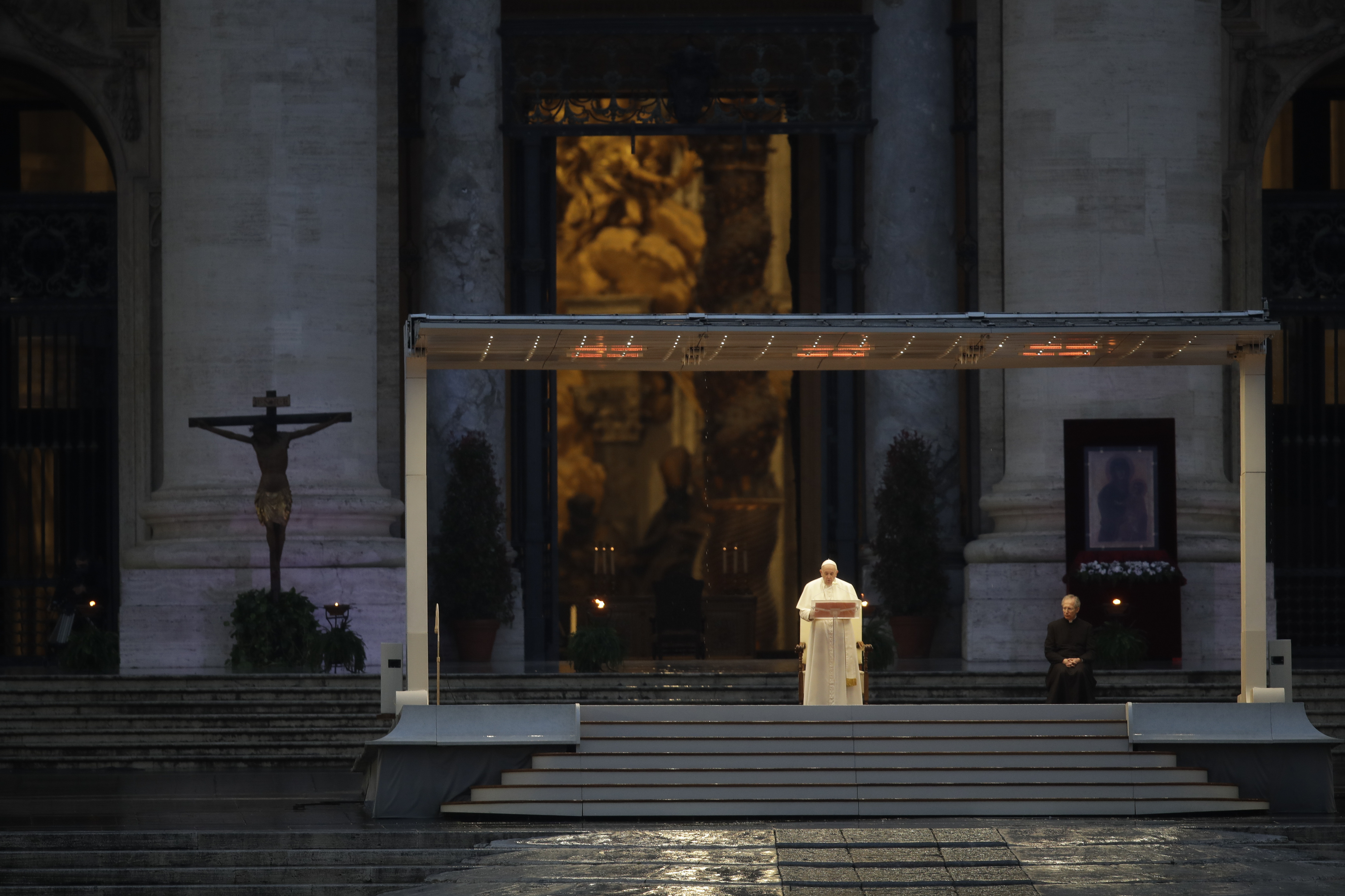
Pope Francis prays in a desolately empty St. Peter's Square, at the Vatican, on March 27, 2020. /AP
Pope Francis prays in a desolately empty St. Peter's Square, at the Vatican, on March 27, 2020. /AP
Commenting on the possibility of a rise in mental health cases after the pandemic is over, Prof. Davies said that "because this is such a widely experienced social situation, people might gain some comfort from the thought that there were many others having a similar experience – the fact that so many people have been caught up in this situation, might itself be a therapeutic thing."